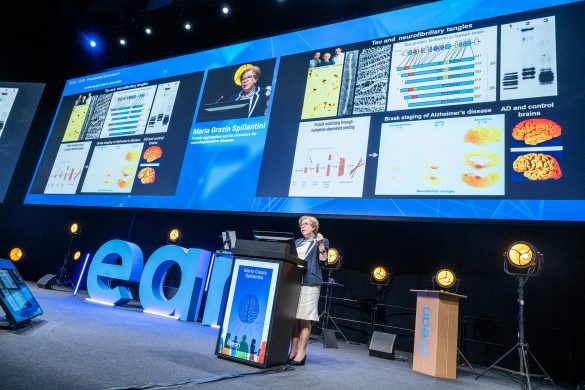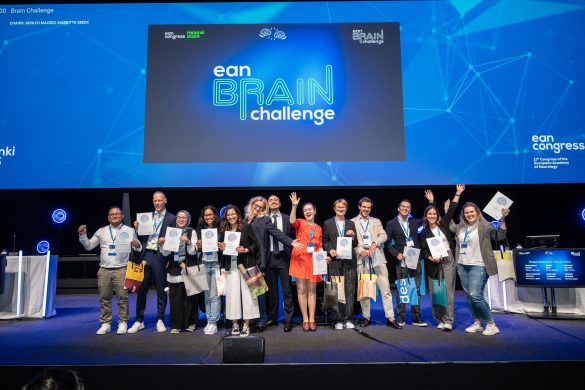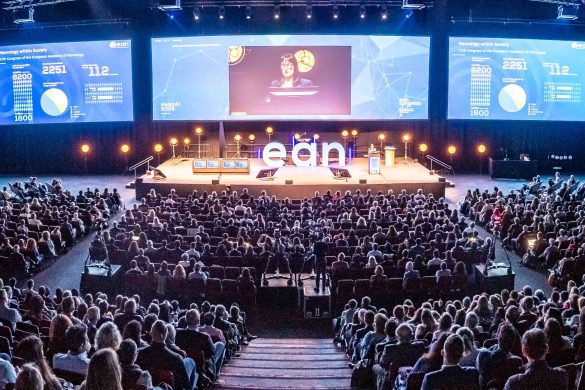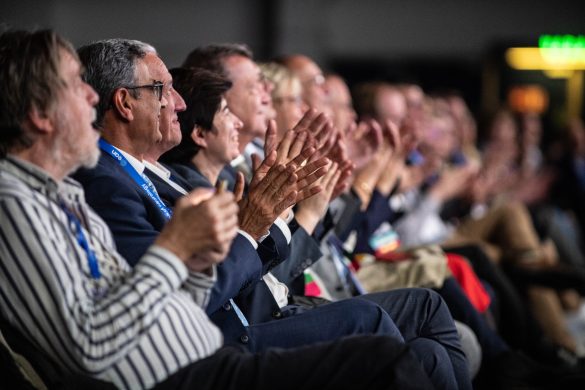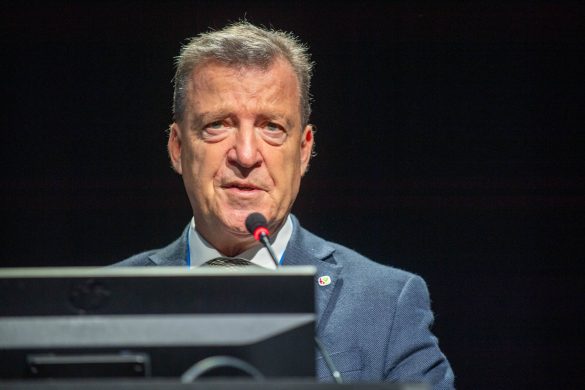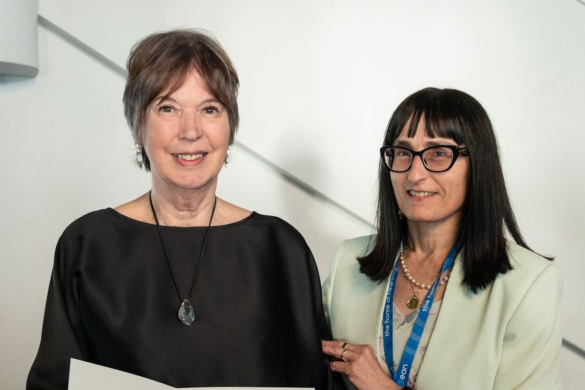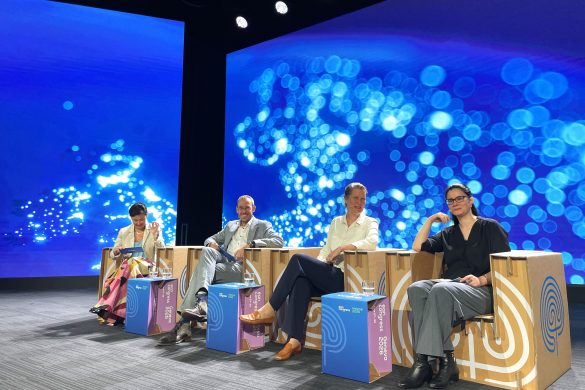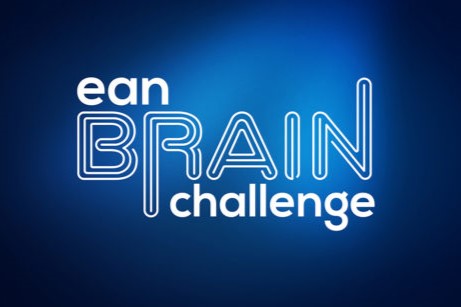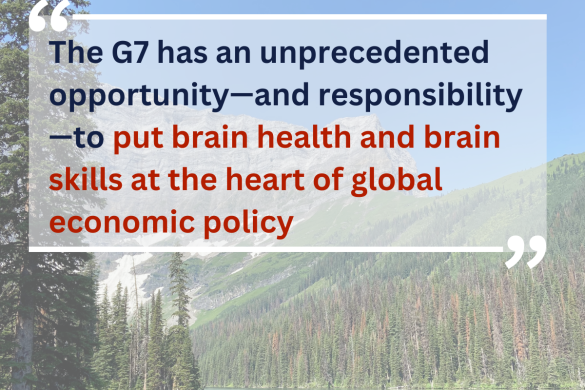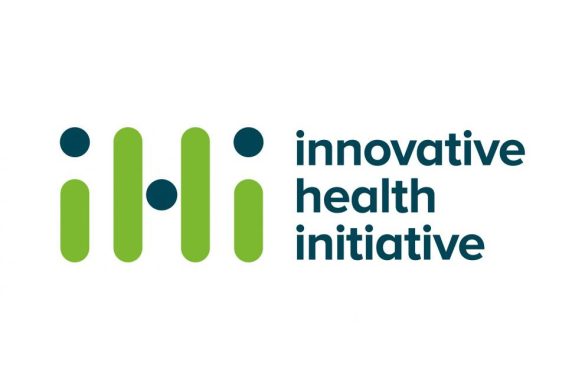AFRICA IN THE COVID-19 PANDEMIC
By Prof. Foad Abd-Allah (AFAN President) & Dr Gams Massi Daniel (AFAN Secretary General)
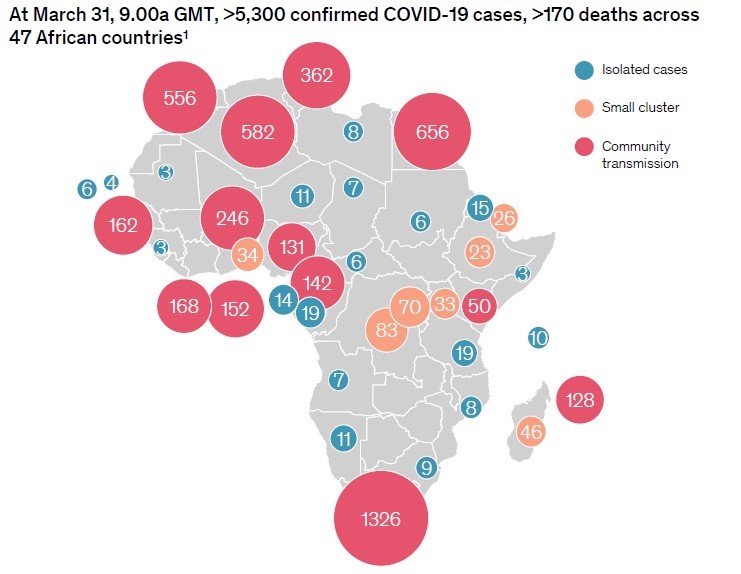
Pic 1. Courtesy of Kartik Jayaram and colleagues; Tackling COVID-19 in Africa: An unfolding health and economic crisis that demands bold action
The new Corona virus disease 2019 (COVID-19) has drastically changed the world as we know it. Every aspect of our lives has been modified to adapt ourselves and to prevent the spread of this novel coronavirus (SARS-CoV-2). According to the World Health Organization (WHO), 1 279 722 confirmed cases have been reported worldwide with more than 72 616 deaths (as of 7 April 2020). Africa is the least affected region (10,260 confirmed cases and 492 deaths). However, this number may be underestimated and is continuing to rise relentlessly. Thus, Africa is facing the biggest challenge of the 21st century: making health as a priority. Scientific societies, national and international health authorities have to work together to strengthen the fight against SARS-CoV-2 and COVID-19.
The African Academy of Neurology (AFAN), which is the largest neurological association in Africa is aware of the neurological manifestations of COVID-19 such as dizziness, headache, and altered consciousness. Recently published reports suggest that SARS-CoV-2 may possess neuro-invasive properties contributing to the development of acute respiratory failure. COVID-19 may affect persons living with chronic neurological conditions such as stroke, epilepsy, chronic pain, nervous system autoimmune disorders and neurodegenerative disease, thus contributing to the morbidity and mortality in such conditions. AFAN recommends that African neurologists be involved in the sensitisation of our populations to reinforce hygiene (hand washing with water and soap, use of hand sanitizers, wearing of masks and Personal protective equipment (PPE) for healthcare workers, disinfection of medical materials, phones, computers and others devices and tools), to maintain a physical distance of at least two metres between and to stay home except for essential trips to hospital or for grocery shopping. For professional activities, it is advised to limit group activities such as conferences, workshops and seminars and instead transition to online platforms for meetings, lectures and training during the pandemic.
AFAN
encourages all neurologists in Africa to stand, advocate and contribute to the
prevention and management of COVID-19 pandemic as well as continue advocacy for
persons living with neurological disease who are now even more severely limited
in their access to neurologic and other healthcare.
AFAN actively participated in the Neurological association of South Africa (NASA) Congress
In other news: the annual congress of the
Neurological Association of South Africa was held in Cape Town (South Africa)
from the 12th to 15th of March 2020. AFAN members
participated in scientific activities such as the comprehensive presentation of
Prof. Foad Abd-Allah (AFAN president) on “running an effective acute stroke
unit in resource-constrained environment” and co-chairing the Africa Stroke
Interest Group Meeting. Prof. Lawrence Tucker (Vice president for South African
region) and Dr Ozayr Ameen (Treasurer) were actively involved in the scientific
content of the meeting. This congress was another successful scientific event,
which also highlighted the good partnership between AFAN and NASA.
AFAN online Board meeting in South
Africa
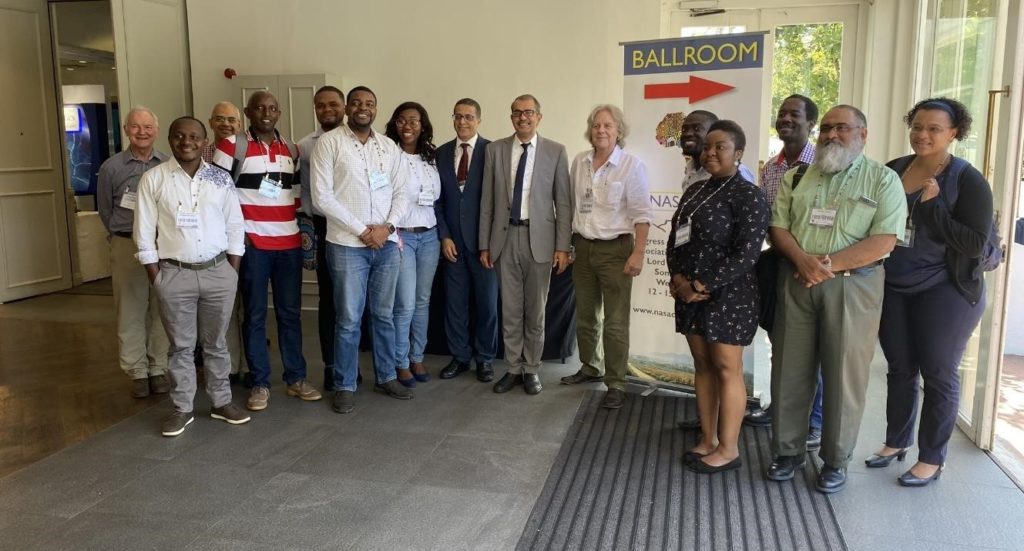
Pic. 2 AFAN Board and executive committee meeting, NASA congress, 15 March 2020, Cape Town, South Africa
AFAN held its first Board of Directors
meeting of 2020 during the NASA congress (on March 15th, 2020). Due
to the COVID-19 pandemic, some Board members were unable to travel to South
Africa. To make sure the majority of Board members contribute, we used
available technology to organize an online Board meeting. Prof. Foad Abd Allah
(President), Prof. Lawrence Tucker (Vice President for Southern Africa), Dr Daniel
Gams Massi (Secretary General), Dr Ozayr Ameen (Treasurer) and Prof. Riadh
Gouider (honorary Board member and WFN Trustee) were physically presents, while
Dr Augustina Charway-Felli (President-elect), Prof. Ange-Eric Kouame Assouan (West
African Vice President), Dr Sakadi Foksouna (Chad Society of Neurology,
invited) were connected via a conference call. Other delegates from a range of African
countries were also present. By successfully holding this online meeting, AFAN
has transcended distance and found new ways for collaboration even in the face
of spatial separation. We hope to continue utilising such technology for other
activities like online training, and webinars for continuous medical education.
****************************
Finally, AFAN wishes the world as whole to overcome the unprecedented COVID-19 crisis with as few losses as possible, and for the Neurology community in particular: a speedy resumption of all activities of training and research so that the people of our continent can have access to appropriate neurological care when required.




